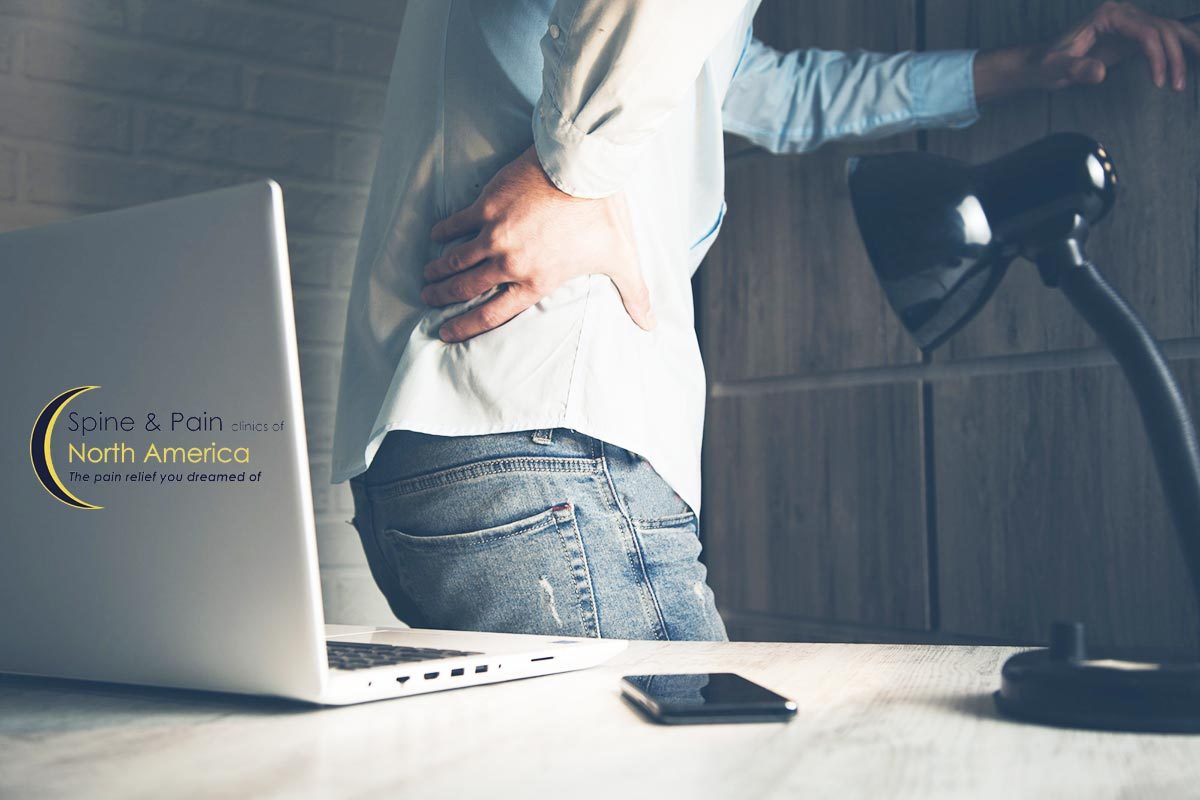Table of Contents
The kidneys rest against the lower back muscles below the rib cage. When the back hurts, especially the lower back, it can be challenging to know whether it is kidney or lower back pain due to a health issue unrelated to the kidneys. However, there are ways to differentiate between the source of pain.
One is the location of pain. Also, kidney pain is often accompanied by various other symptoms that are not experienced with back pain. Understanding the difference between back pain and kidney pain is important to know how quickly to see a doctor.
Symptoms of Back Pain vs. Kidney Pain
Pain may be a common symptom, but there are differentiating symptoms that indicate whether it is back pain or kidney pain. Knowing how to tell the difference between back and kidney pain is important for many reasons, but a critical reason is that kidney pain may indicate a serious medical condition needing a doctor’s attention immediately.
Back Pain Symptoms
Back pain is a common issue, with approximately 39% of U.S. adults experiencing it at some point in their lives. Back pain can be either acute or chronic, and it can develop for various reasons. Common sources of back include degenerative disc disease, spinal stenosis, strained back muscles, herniated discs, vertebral fractures, or arthritis. Understanding the nature of back pain can help you differentiate it from kidney pain.

Some of the ways to characteristics of back pain include the following.
- Back pain is usually in the lower back or cervical spine area
- Pain occurs along a spectrum from a dull ache to a sharp pain
- Pain may be felt in a specific location or is generalized all over the back
- Acute pain will ease with proper care
- Muscle stiffness and spasms commonly accompany back pain
- Pain may come and go, depending on the person’s movements
- Back pain may ease on its own, depending on the cause
Lower back pain may be felt on one or both sides of the back. Low back pain can radiate pain when it is due to disk herniation or arachnoiditis.
Kidney Pain Symptoms
Like back pain, kidney pain may range from mild to severe. Unlike back pain, it may warrant calling a doctor right away. Kidney pain often indicates the urinary system has developed a problem; if left unchecked, the problem can worsen. For example, if it is a kidney infection and left untreated, permanent kidney damage can occur, or the infection can spread throughout the body.
Some ways to identify if pain in the back is kidney-related pain include the following.
- Kidney pain is usually felt higher than low back pain, between the rib cage and the hips.
- Pain ranges from dull to sharp and may radiate in some cases, meaning it may be felt in the abdomen, side or lower back.
- Pain severity is determined by the source of the pain, i.e., a kidney stone causes severe pain and a kidney infection can cause varying degrees of pain.
- Sometimes, other symptoms develop that include vomiting, nausea, fever, urinary urgency and frequency, blood in the urine and problems urinating.
- Pain is felt while urinating.
- Pain may feel deeper inside the body instead of localized like lower back pain.
- Pain remains constant during movement.
- Pain severity may change, depending on the cause, i.e., a dull soreness becomes a sharp pain when kidney stones pass.
- Except when passing kidney stones, kidney pain usually does not get better without intervention.
Kidney pain may affect one or both kidneys, which means, like lower back pain, it may be felt on one or both sides of the body. However, kidney pain is usually localized on one side. When the pain is across the back, it is more likely to be a back muscle or spinal disc issue.

See a Doctor for a Diagnosis
Like back pain, kidney pain has many causes. It could be kidney stones, a kidney infection, bleeding or a disease like kidney cancer, to name a few. When a persistent dull pain in the back does not improve quickly, it is important to see a doctor immediately, especially if other symptoms develop. Depending on the cause of the kidney pain, early treatment of a developing kidney problem usually prevents progression to a more serious state, like spreading infection.
Instead of speculating whether it is back pain or kidney pain, seeking a professional medical diagnosis is crucial. Some forms of kidney pain, if left untreated, can lead to serious conditions like chronic kidney disease or kidney scarring that impairs kidney function. Also, some causes of back pain will not improve without a doctor’s assistance. You can take the necessary steps to manage your condition by getting a proper diagnosis.
Sources
- https://www.ncoa.org/adviser/sleep/back-pain-statistics/
- https://www.ncbi.nlm.nih.gov/books/NBK572334/table/diagnosis.t1/
- https://www.kidneyfund.org/all-about-kidneys/other-kidney-problems/kidney-infection
- https://www.kidney.org.uk/pain-in-kidney-or-urine-diseases
- https://www.niddk.nih.gov/health-information/urologic-diseases/kidney-infection-pyelonephritis/symptoms-causes
